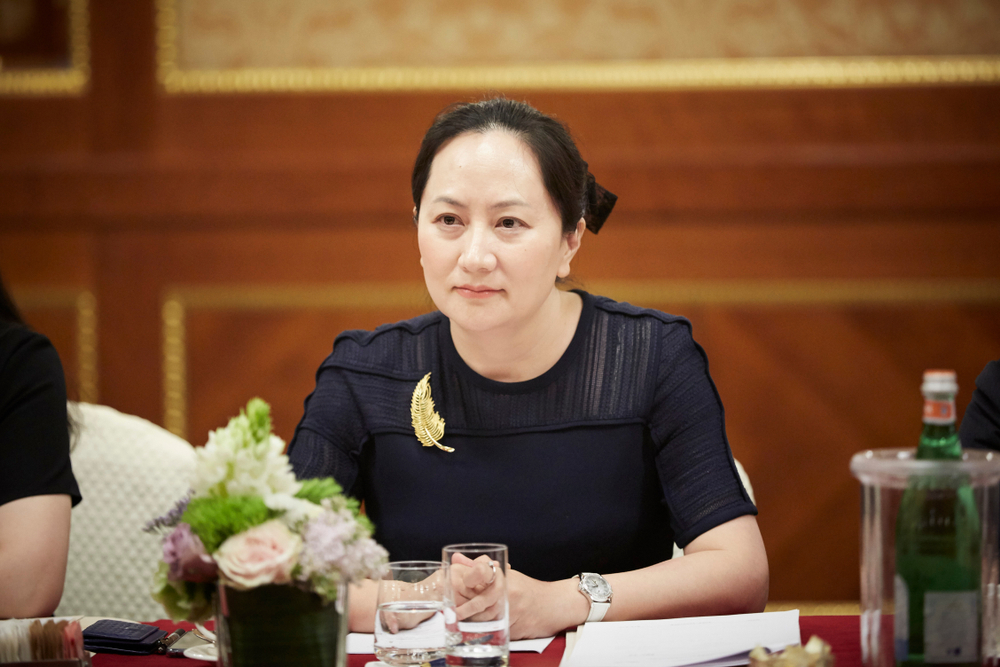
OTTAWA — The case of Huawei senior executive Meng Wanzhou, which has drawn interest from around the world, returns to a Vancouver courtroom this week.
Canada’s relationship with Beijing has deteriorated rapidly since the December arrest of the Chinese telecom giant’s chief financial officer, which was carried out after an extradition request by the United States.
A statement from Canada’s Justice Department says the purpose of Thursday’s proceeding is to address additional applications in Meng’s extradition case and to set future court dates.
The new dates will not be for the actual extradition hearing, which has yet to be scheduled, and Meng is not expected to attend Thursday’s proceeding in person, the statement says.
The U.S. Department of Justice laid 13 criminal charges, including conspiracy, fraud and obstruction, against Huawei and Meng, who is the daughter of the company’s founder.
Her arrest has infuriated Chinese officials and the government has demanded her release.
Chinese authorities have since detained two Canadians on allegations of endangering the country’s national security, sentenced two Canadians to death for drug-related convictions and blocked key agricultural shipments — including canola.
Prime Minister Justin Trudeau has sought international support in condemning China’s decision to, in his word, “arbitrarily” arrest Michael Kovrig, a Canadian diplomat on leave, and businessman Michael Spavor.
Last week on a visit to Ottawa, U.S. Vice-President Mike Pence linked the liberation of the two imprisoned Canadians to its trade talks with the China.
Pence said President Donald Trump would push Chinese President Xi Jinping on Kovrig and Spavor at the G20 leaders’ summit later this month. Trudeau is also expected to travel to Japan for that summit.
The offer is significant because the Chinese government has continually rebuffed requests from Foreign Affairs Minister Chrystia Freeland to speak with her counterpart.
Pence also urged Ottawa to follow the American lead and ban Huawei from supplying equipment for Canada’s next-generation 5G wireless networks.
He argued letting Huawei participate would be against American security interests. Trudeau replied by reiterating that Canadian government would rely on evidence from its own security agencies before making a decision.
Huawei has denied allegations that its digital communications equipment is a tool of Chinese state espionage.
The decline of Canada-China relations has also led to some important economic consequences.
China has been a huge market for Canadian canola seed, which is crushed to make cooking oil. It imported $2.7 billion worth of Canadian canola seed last year, and any prolonged blockage will hurt farmers, the industry and the national economy.
China has stonewalled requests for Canadian experts to examine Chinese evidence that two canola-seed shipments contained pests.
In an interview last week, International Trade Minister Jim Carr said Canada wants to engage on the issue. In the meantime, Carr said, Canada has been trying to increase canola sales in other markets such as Malaysia, Pakistan, Bangladesh and the United Arab Emirates.
“The reception has been very warm and very positive because they recognize the high quality of our product,” he said.
Meng’s defence team has said it plans to argue she shouldn’t be extradited to the U.S. because she hasn’t broken Canadian laws and that her arrest at Vancouver’s airport was unlawful.
Her lawyers have alleged Meng was the victim of two “abuses of power,” first by Canadian authorities and then by U.S. President Donald Trump. They intend to make an argument based on “double criminality,” related to different sanction and fraud laws in the U.S. and Canada.
The Extradition Act says that an alleged action would have to be criminal in Canada to justify sending someone to another country to face charges.